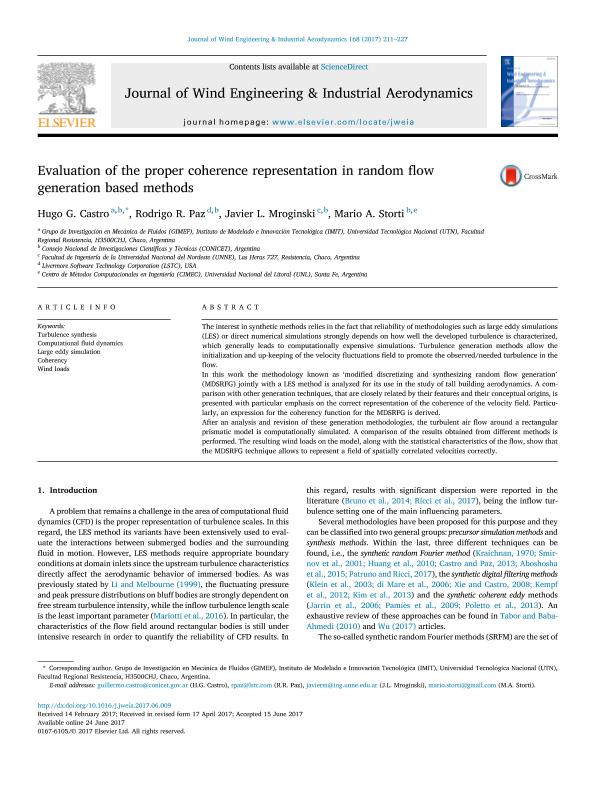Artículo
Evaluation of the proper coherence representation in random flow generation based methods
Fecha de publicación:
09/2017
Editorial:
Elsevier Science
Revista:
Journal of Wind Engineering and Industrial Aerodynamics
ISSN:
0167-6105
Idioma:
Inglés
Tipo de recurso:
Artículo publicado
Resumen
The interest in synthetic methods relies in the fact that reliability of methodologies such as large eddy simulations (LES) or direct numerical simulations strongly depends on how well the developed turbulence is characterized, which generally leads to computationally expensive simulations. Turbulence generation methods allow the initialization and up-keeping of the velocity fluctuations field to promote the observed/needed turbulence in the flow. In this work the methodology known as ‘modified discretizing and synthesizing random flow generation’ (MDSRFG) jointly with a LES method is analyzed for its use in the study of tall building aerodynamics. A comparison with other generation techniques, that are closely related by their features and their conceptual origins, is presented with particular emphasis on the correct representation of the coherence of the velocity field. Particularly, an expression for the coherency function for the MDSRFG is derived. After an analysis and revision of these generation methodologies, the turbulent air flow around a rectangular prismatic model is computationally simulated. A comparison of the results obtained from different methods is performed. The resulting wind loads on the model, along with the statistical characteristics of the flow, show that the MDSRFG technique allows to represent a field of spatially correlated velocities correctly.
Archivos asociados
Licencia
Identificadores
Colecciones
Articulos(CIMEC)
Articulos de CENTRO DE INVESTIGACION DE METODOS COMPUTACIONALES
Articulos de CENTRO DE INVESTIGACION DE METODOS COMPUTACIONALES
Citación
Castro, Hugo Guillermo; Paz, Rodrigo Rafael; Mroginski, Javier Luis; Storti, Mario Alberto; Evaluation of the proper coherence representation in random flow generation based methods; Elsevier Science; Journal of Wind Engineering and Industrial Aerodynamics; 168; 9-2017; 211-227
Compartir
Altmétricas




